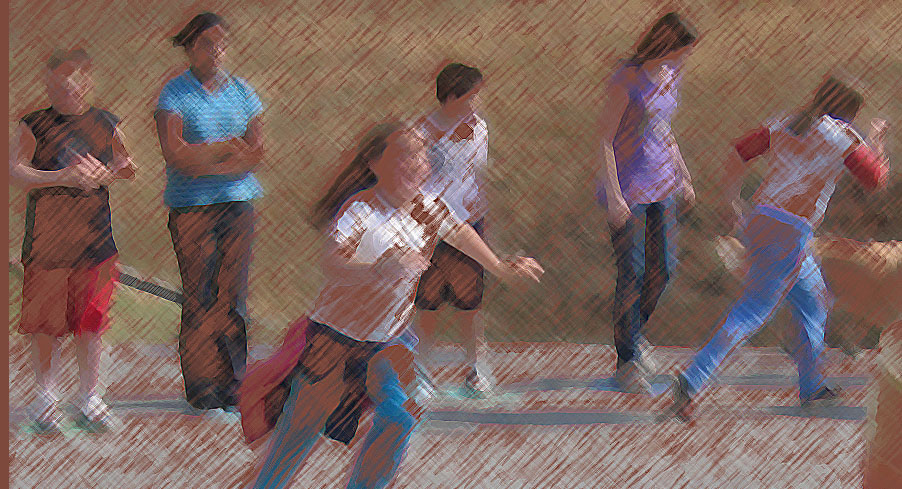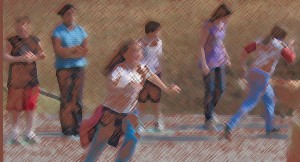
Apr 26, 2010 The Disappearance of Neighborhood Games. How Do We Help Students Continue to Learn from Play?
In my work with students in a variety of schools and treatment programs I have noticed over recent years that they increasingly seem to struggle with group decision-making. On the playground during recess I have observed elementary students coming to ask teachers to resolve the simplest disagreements or conflicts(for instance who is going to be “it” first in a one on one tag game). They often depend on teachers and other adults to pick teams for games, decide who should go first, or who should be it. These are decisions that I remember my peers and I sorting out on our own (most of the time) during our pick up games of “kick the can”, kick-ball and other games we played in our neighborhood or playground.
I started realizing this might be influenced by the fact that many youth in today’s society don’t have the opportunity to engage in the unsupervised free play with peers that many of us who are now adults did during our childhood.

Our society is becoming increasingly isolative. Children aren’t out playing pickup games of kickball or kick the can in their neighborhoods during free time after school, or on summer evenings as they once did. Parents are often fearful about letting kids play and roam the neighborhood on their own.
Children and adolescents participate in a great deal of solo video and computer games. Most often children’s group recreation these days involves team sports, clubs, and after school programs led by adults. There is obviously great value in structured team and after school programs, and a benefit to having excellent adult role models in these programs who positively impact students.
A downside of this shift is that kid’s are not gaining the important skills that are learned from interaction with peer only groups without adult intervention. They miss out on opportunities to practice being flexible and making compromises with each other in order to make a game work and learning that play is not always “getting their way” or winning. In peer only activities kids gain valuable experience in coming to consensus on the rules of play, decision-making, and developing social skills around communication and conflict resolution.
I remember as a kid having many opportunities for unstructured play in our neighborhood; pickup games of all kinds filled our summer days and after-school hours. Arguments about who was “it” or who won inevitably arose, but we figured out ways to work it out ourselves rather than interrupt the game to run home and get an adult to decide for us. It appears that in modern society with less participation in peer-only play, kids are missing out on opportunities to gain conflict resolution, problem solving and group communication skills. We can help students gain these skills by providing opportunities within our adult led structured programs to practice decision making and communication on their own.
After observing this trend in students I work with, I started intentionally focusing on implementing activities that practice the use of decision-making by consensus. I purposefully create situations and opportunities that allow students to practice coming to agreement on the rules of the game, a team name, a team symbol etc. I use methods that involve pairs and then groups making simple choices together and work up to practicing group consensus. This a valuable practice for groups of all ages.
In the next few days I will post some of my favorite activities and strategies for helping learners practice these important skills. Please share your thoughts about the changes in the patterns of play, the value of “free play” and strategies you have found useful in helping students learn and practice these valuable life skills within structured programs.



michael cardus
Posted at 13:40h, 28 AprilJen..
This loss of free play is valid. Yet we have to remember that many of us are also the ones who created this loss of free play.
Pressure for every child to go to college, pressure for “empowerment” and practical uses of time.
Also sometimes as a facilitator I wonder how and what my implication in this problem is? Experiential orgs. changing names to be sensitive Mine field, bang bang, youre out to your special.
The idea of free play and unstructured games will return…
I agree working with students many teachers and my observations are that conflict resolution and choice are lacking.
When working with and facilitating team membership programs with new hires from college much time is spent on them just taking action to choose a method for decision making. The “just tell us what to do” comment happens frequently.
thank you for making me think.